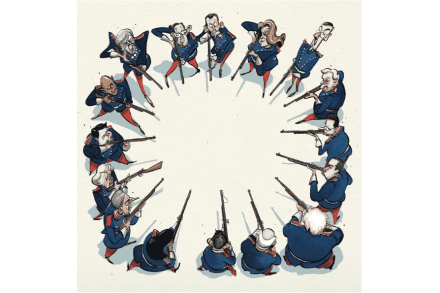Tory MPs split on Johnson’s absence
Boris Johnson has left the country – but that hasn’t stopped him from annoying his backbenchers. The Prime Minister is visiting Ukraine today to meet with President Zelensky. He’s announced that the UK will expand its training capacity for Ukrainian forces to process up to 10,000 soldiers every 120 days. That ought to be a visit that wins universal applause within the Tory party. Yet while there is near-unanimity across the Conservative parliamentary party at the need to support Kyiv’s struggle against Russia, some are unhappy with the timing of Johnson’s announcement and sudden trip abroad. The Prime Minister was due to speak today at the Northern Research Group of





















